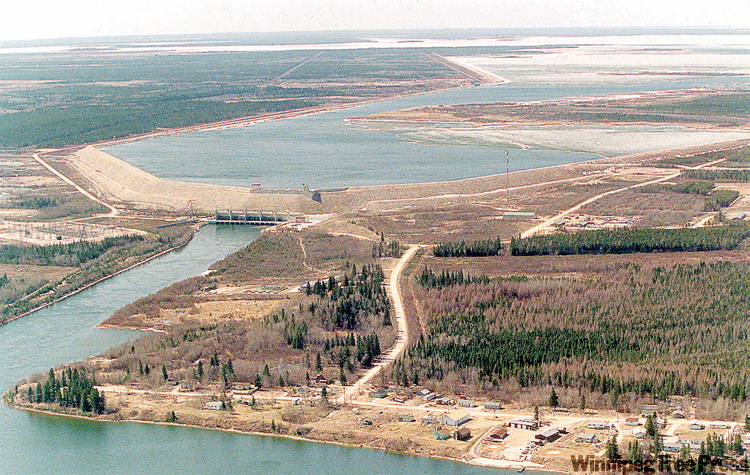First Nations negotiating settlement
Millions on line in flooding case that has dragged on since 1992
Advertisement
Read this article for free:
or
Already have an account? Log in here »
To continue reading, please subscribe:
Monthly Digital Subscription
$1 per week for 24 weeks*
- Enjoy unlimited reading on winnipegfreepress.com
- Read the E-Edition, our digital replica newspaper
- Access News Break, our award-winning app
- Play interactive puzzles
*Billed as $4.00 plus GST every four weeks. After 24 weeks, price increases to the regular rate of $19.95 plus GST every four weeks. Offer available to new and qualified returning subscribers only. Cancel any time.
Monthly Digital Subscription
$4.99/week*
- Enjoy unlimited reading on winnipegfreepress.com
- Read the E-Edition, our digital replica newspaper
- Access News Break, our award-winning app
- Play interactive puzzles
*Billed as $19.95 plus GST every four weeks. Cancel any time.
To continue reading, please subscribe:
Add Free Press access to your Brandon Sun subscription for only an additional
$1 for the first 4 weeks*
*Your next subscription payment will increase by $1.00 and you will be charged $16.99 plus GST for four weeks. After four weeks, your payment will increase to $23.99 plus GST every four weeks.
Read unlimited articles for free today:
or
Already have an account? Log in here »
Hey there, time traveller!
This article was published 26/02/2016 (3615 days ago), so information in it may no longer be current.
Negotiations could soon trump a court case that has dragged on for nearly a quarter-century in obscurity, one that could see three Cree bands get millions in flood compensation.
Last month, lawyers for the three First Nations proposed a settlement process to Canada’s lawyers. Lawyers for Justice Canada are considering the settlement process proposal, and, according to court documents, both sides could offer an update to the Federal Court next month.
That could put an end to a case marked by long procedural delays, little public interest and a battle over piles of documents Canada sought to keep secret. It began in 1992 when three Cree bands — Misipawistik, Chemawawin and Opaskwayak — sued Ottawa for failing in its duty to protect them in the early 1960s when Manitoba Hydro and the province built the Grand Rapids dam. The bands allege Ottawa shirked its duty to protect them from flooding that destroyed their hunting, fishing and burial grounds, forced hundreds to relocate to substandard reserves and shattered local economies and social structures. Hardest hit was Chemawawin, which was relocated to the rocky outcrops of Easterville when its old reserve, including ancestral burial grounds, were inundated by about 15 metres of water.

In 1985, a Winnipeg consulting firm was tasked with preparing a report for the federal government about what happened to the Cree in the 1960s. The 135-page report, which the Cree hoped to rely on in their court case, details how the Manitoba government wanted to build the dam as fast and cheaply as possible, stifling even internal dissent from staff who feared the economic future of the Cree would be severely harmed. The researchers found the Cree were on their own, with no provincial organization to aid them, no lawyers or consultants of their own and limited English. After one 1962 meeting where no band members asked any questions, one Indian Affairs field representative said he “left with the distinct feeling that no one could care less as to whether the people sink or swim.”
Six years ago, as the court case was heating up, First Nations leaders, including then-Misipawistik chief Ovide Mercredi, went to Ottawa to lobby MPs and senators asking for a negotiated settlement to the lawsuit.
At about the same time, the federal government began a battle to keep secret hundreds of documents — ministerial briefing notes, internal correspondence, legal opinions — the First Nations believed would prove the federal government knew for years it had failed to protect three Cree bands from hydro-dam flooding and might be liable for millions in compensation. Canada argued the documents should be covered by solicitor-client privilege. The Federal Court of Appeal ultimately sided with the First Nations. Last fall, Canada turned over hundreds of documents to the First Nations, but they have yet to be made public.
Misipawistik Cree Nation Chief Harold Turner said this week he discussed the case with Justice Minister Jody Wilson-Raybould during the Assembly of First Nations annual gathering in Gatineau, Que., before Christmas.
“I delivered the court case and history of our lawsuit to the minister of justice and requested that the (federal government) negotiate a settlement with us,” said Turner.
That, combined with the minister’s mandate to review all outstanding litigation to ensure it’s consistent with Liberal pledges, gives Turner hope the Hydro court case could be set aside in favour of settlement talks.
“It helps when both parties would rather negotiate their differences than fight it out in court,” he said.
‘It helps when both parties would rather negotiate their differences than fight it out in court’– Misipawistik Cree Nation Chief Harold Turner
Officials from Indigenous and Northern Affairs Canada would not confirm Canada is moving toward negotiations in the case. Officials said the new Liberal government “remains committed to renewing our relationship with indigenous peoples based on trust, respect and co-operation.
“The minister of justice has been tasked with reviewing the government’s litigation strategy, and is working with her cabinet colleagues to do so,” said a spokeswoman in an email. “It would be premature to speculate on the outcome of that review.”
maryagnes.welch@freepress.mb.ca
History
Updated on Friday, February 26, 2016 7:25 AM CST: Adds photo


